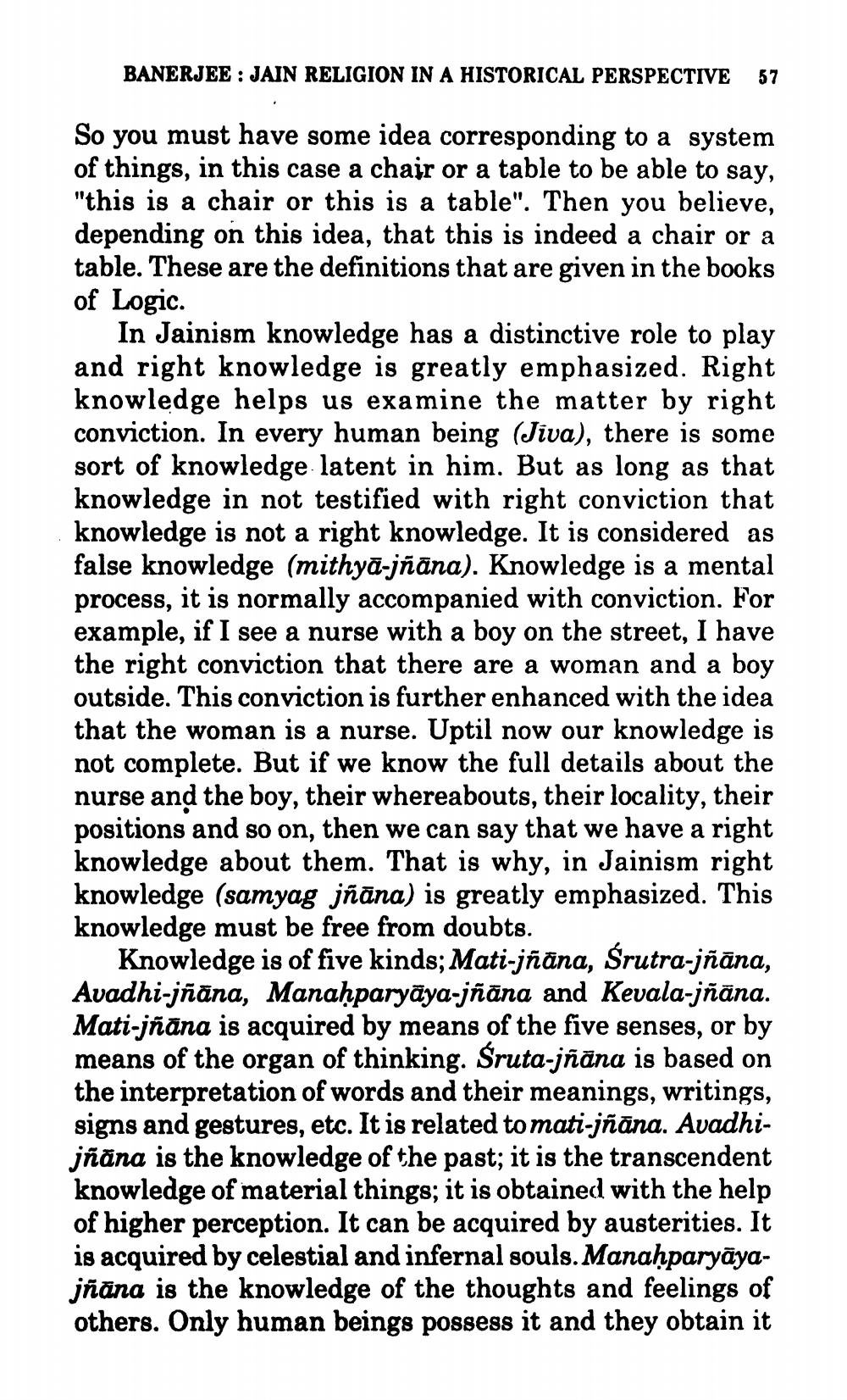________________
BANERJEE : JAIN RELIGION IN A HISTORICAL PERSPECTIVE 57
So you must have some idea corresponding to a system of things, in this case a chair or a table to be able to say, "this is a chair or this is a table". Then you believe, depending on this idea, that this is indeed a chair or a table. These are the definitions that are given in the books of Logic.
In Jainism knowledge has a distinctive role to play and right knowledge is greatly emphasized. Right knowledge helps us examine the matter by right conviction. In every human being (Jiva), there is some sort of knowledge latent in him. But as long as that knowledge in not testified with right conviction that knowledge is not a right knowledge. It is considered as false knowledge (mithyā-jñāna). Knowledge is a mental process, it is normally accompanied with conviction. For example, if I see a nurse with a boy on the street, I have the right conviction that there are a woman and a boy outside. This conviction is further enhanced with the idea that the woman is a nurse. Uptil now our knowledge is not complete. But if we know the full details about the nurse and the boy, their whereabouts, their locality, their positions and so on, then we can say that we have a right knowledge about them. That is why, in Jainism right knowledge (samyag jñāna) is greatly emphasized. This knowledge must be free from doubts.
Knowledge is of five kinds; Mati-jñāna, Śrutra-jñāna, Avadhi-jñāna, Manaḥparyāya-jñāna and Kevala-jñāna. Mati-jñāna is acquired by means of the five senses, or by means of the organ of thinking. Sruta-jñāna is based on the interpretation of words and their meanings, writings, signs and gestures, etc. It is related to mati-jñāna. Avadhijñāna is the knowledge of the past; it is the transcendent knowledge of material things; it is obtained with the help of higher perception. It can be acquired by austerities. It is acquired by celestial and infernal souls. Manaḥparyāyajñāna is the knowledge of the thoughts and feelings of others. Only human beings possess it and they obtain it




